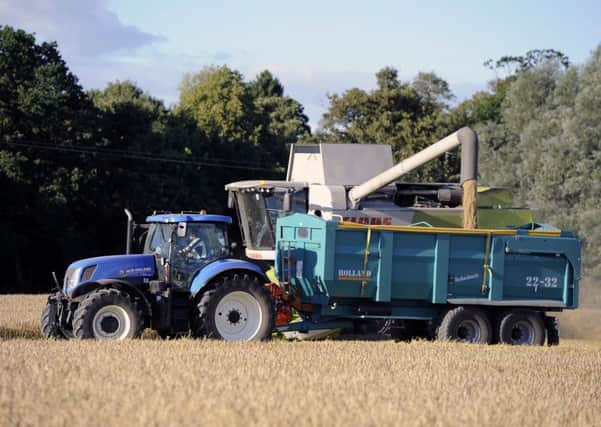Brexit boost a chance to get farming's house in order
This article contains affiliate links. We may earn a small commission on items purchased through this article, but that does not affect our editorial judgement.


But producers should use this unexpected boost to ensure that balance sheets are stabilised, debts reduced and businesses put in a stronger position to withstand the next downturn.
That was the clear message given by the farm business consultancy Andersons yesterday when it launched its annual outlook report.
Advertisement
Hide AdAdvertisement
Hide AdSpeaking at a breakfast briefing for farm consultant and advisers in the Borders, director David Siddle said that on the surface of things, it appeared that the economy had coped reasonably well with the short-term Brexit surprise.
“The exchange rate between the euro and sterling is the biggest single determinant of UK farm profitability,” said Siddle. “And in the short-term agriculture looks set to receive a boost in returns on the back of weakened sterling.”
He said that if the current rates remained in play, 2017 and 2018 could provide better returns for the industry. He said that the difference in exchange rates had improved returns for beef and cattle producers and had also seen grain growers achieve marginal improvements in prices while they had been falling elsewhere in Europe.
“And although a number of grain producers failed to benefit from the upturn in prices as they had sold forward before the Brexit vote, the futures markets have offered them the opportunity to sell some of their 2017 grain forward at prices approaching £140 a tonne.”
However, while the short-term might look better than many had feared, Brexit held huge potential to have a highly negative impact on the industry over the longer term.
Stressing that agriculture itself was likely to be a minor consideration for UK government negotiations, he said the industry had to make its voice heard – and working along with processors and retailers was crucial.
Rise of £107 a hectare expected
Figures produced for the organisation’s hypothetical Meadow Farm in the outlook report showed that, while it was calculated that Brexit was likely to boost both the value of farm output and support levels for 2017, by 2025 both these figures had dropped substantially.
And while business surplus was likely to rise to £107 a hectare in 2017, under the company’s prediction for a “soft” Brexit this was likely to fall to £6 a hectare in 2025 – while under the “hard” Brexit option, a substantial loss of £170 for each hectare was predicted.
